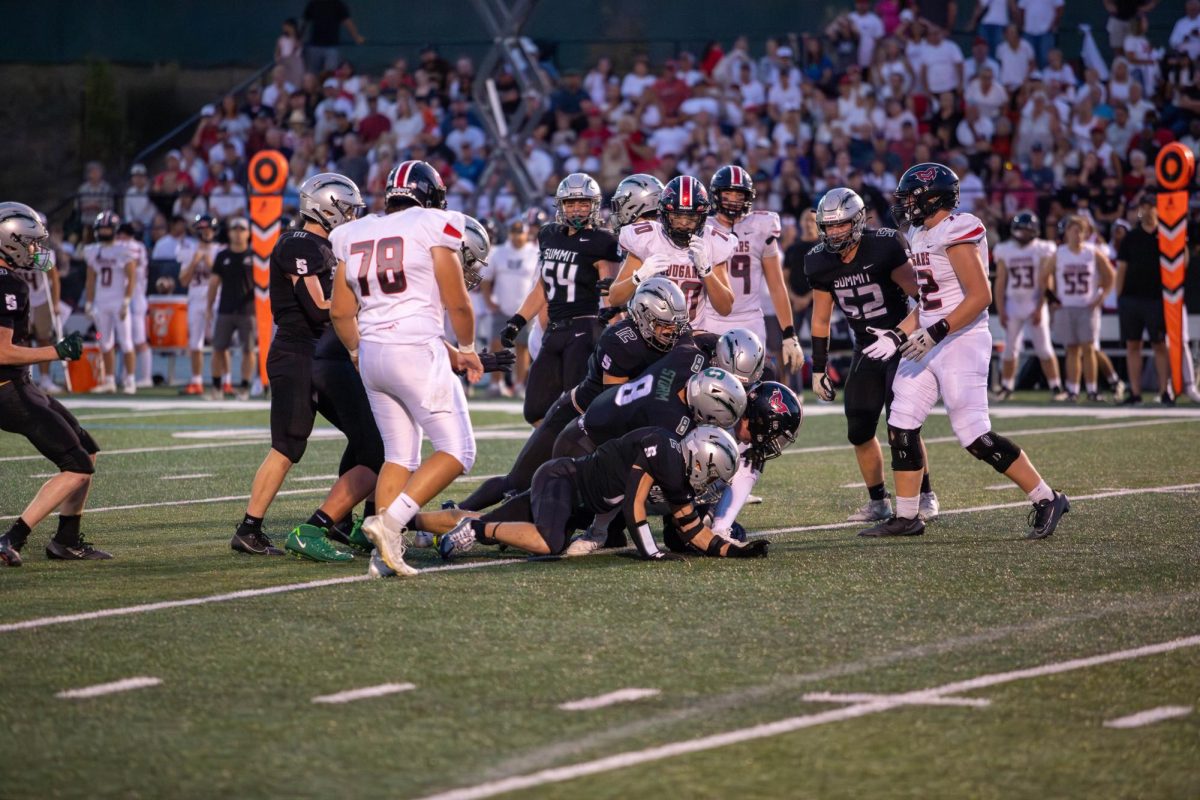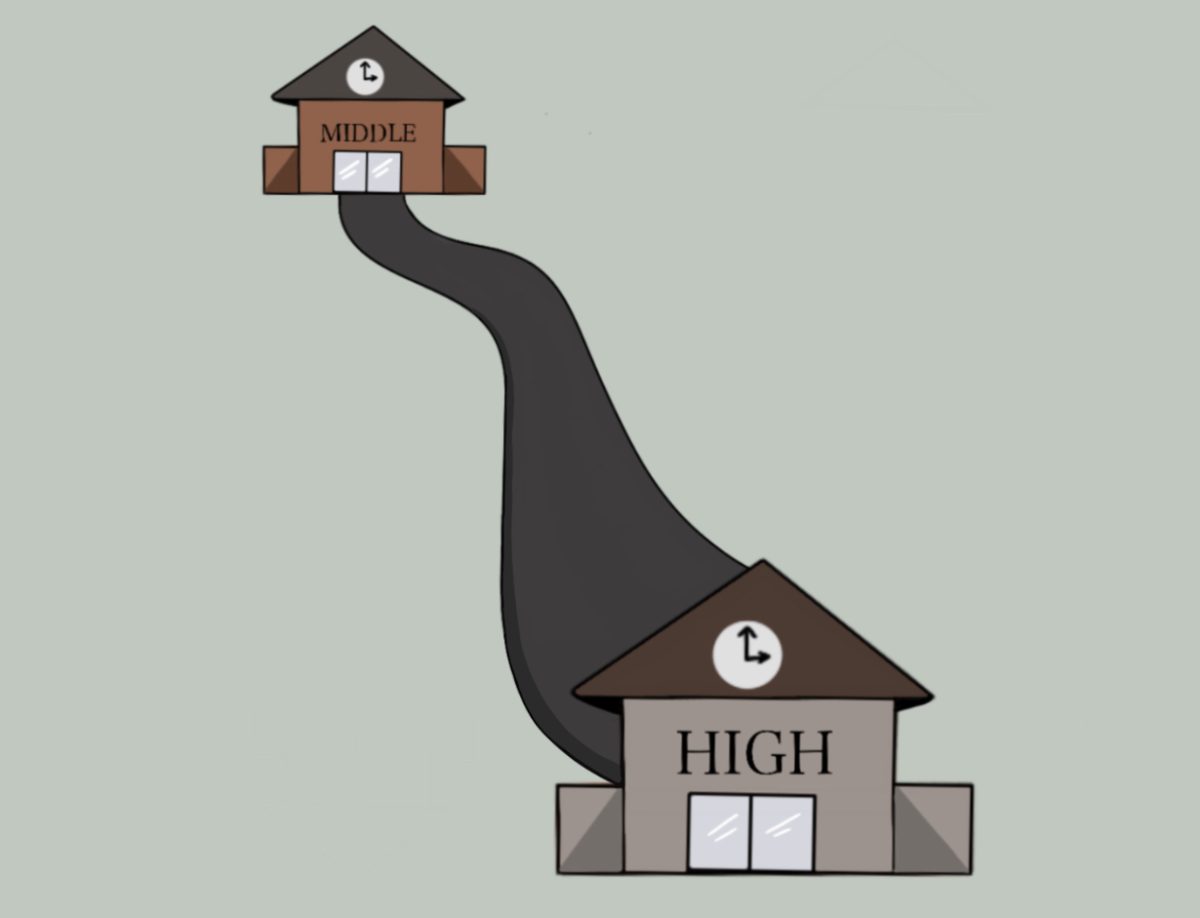Each year, an influx of 200-300 students join Summit as freshmen. All of them come from various middle schools, but they share one similarity: as they all take this big step in life, many realize what they are and aren’t prepared for. High school brings countless new opportunities, but the hard part is the independence and unfamiliar workloads.
According to a survey given to middle school students, mostly from Pacific Crest Middle School, about 93% of the students surveyed said they had very little homework and many said most of that was what they hadn’t finished in class. In response to how they could better prepare for high school, an anonymous 7th grader from Pacific Crest was unsure.
“I don’t know,” commented the student. “I don’t know what high school teaches so I don’t know what I need to learn now to be successful in high school.”
There’s so much middle schoolers still don’t know about high school, like the difference in maturity and independence, the rise in workload and navigating the in-between stage of being a child while also requiring the maturity for more serious topics. Giving these younger students a bit more freedom and opportunities for independence can help them learn to grow in that field.
Middle school science and leadership teacher Jane Shein speaks on how she sees the issues of unprepared students.
“Middle school students have very little homework. In middle school, there is a greater focus on finding a balance between school, family and extracurricular activities,” Shein said. “Work-life balance is important, but as a former high school teacher and a parent of a high school student, I know that many 9th graders are unprepared for how much homework they have in advanced high school classes, and they haven’t built essential study skills that will help them to succeed in more rigorous academic environments.”
Along with more difficult workloads, middle schools often don’t teach students about what classes they should take for advancements, such as taking a higher class level, required credits or more advanced education they may want. This leaves many freshmen unsure what classes they want to take and often regretting the ones they do. Another difference incoming high schoolers notice is that their grades and attendance matter more than they did in middle school. Without enforcing standards such as these earlier, middle school students are stuck entering high school at a disadvantage.
Moving from middle school to high school also allows students to find new social groups and friends. Middle schoolers often hear about how high school is scarier and much larger than what they’re used to, but this doesn’t always have to be true. While high school is much larger than middle school, students found that once they found community through clubs and sports the school became less overwhelmingly large than they had been told.
Even though this is a beneficial aspect of high school, many incoming freshmen come in blind and don’t know what to expect. Summit freshman Nora Spitznagel emphasized her experiences with how high school is different than it’s often described, stating that it was much better than she imagined.
“Teachers will care about you, want to get to know you and people are genuinely nice and you’re not alone,” Spitznagel said.
Some middle school teachers do more to prepare students than others, but often students also get stressed from the rumors and the anxiety of change.
“If our primary goal is to prepare students academically, then middle schools need to increase academic rigor by increasing workload and requiring students to practice their learning at home,” Shein said, talking about how to prepare students more and how teachers prepare them for life as well.
In addition, Shein believes that middle schools should work to change their socially-focused curricula as well.
“If our goal as teachers is to help our students grow into well-rounded individuals, it is equally important that we focus on developing positive character traits and engage students in learning in the hopes of creating engaged citizens who ask questions and make positive contributions to our world,” Shein commented.
Preparing students by giving them independence and leading them up to the point of high school gives them the chance to be less concerned over the big grade change. For future freshmen generations, it’s important to change our middle school approach and ensure a smoother transition and better experience in high school.
































